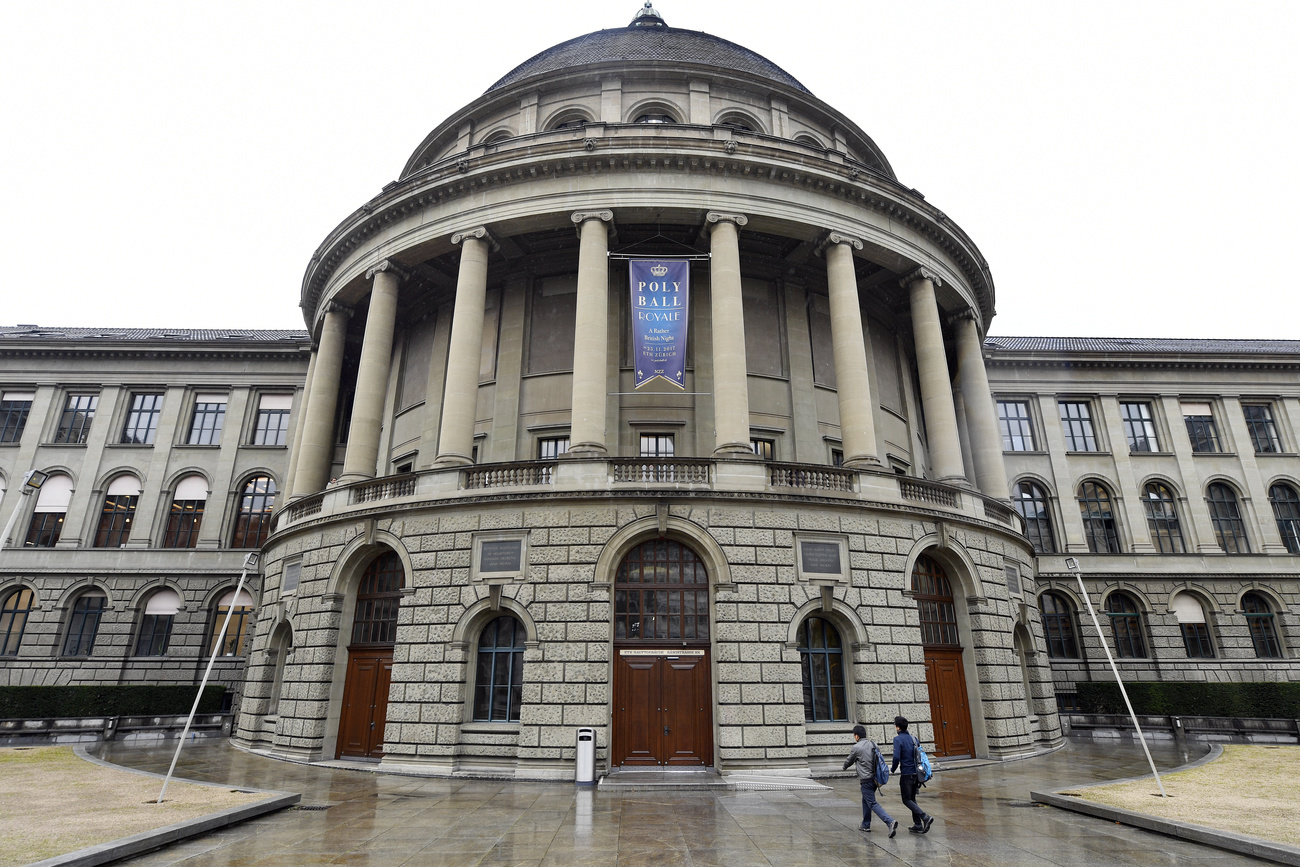
Female professors in Switzerland? Still a way to go

Although women now make up a narrow majority of students, few make it to the academic upper echelons in Switzerland. Change is coming about... slowly.
On March 8, International Women’s Day, the ETH Board announcedExternal link a CHF13 million ($14 million) a year investment in a new Gender Strategy for the ETH DomainExternal link, a group of institutions which includes the internationally renowned Swiss Federal Institutes of Technology in Lausanne (EPFL) and Zurich (ETH Zurich), as well as four other research institutes across Switzerland.

More
Swiss federal technology institutes among world’s top-ranked universities
This comes a month after the Swiss National Science Foundation (SNSF) – which already has several initiatives underway to help female researchers – said it would introduce quotas for women on its important evaluation committees to help increase the visibility of women in research.
According to the latest official figures, Switzerland has just over 50% female students, but only 23% female professors. That’s just below the European Union average of 24%. At the more technically- oriented ETH Zurich and EPFL, it’s under 20%External link; these two institutions only have around a third female students. But there are signs of progress: in 2020 around 40% of newly appointed professors the ETH Zurich and the EPFL were women.
Pandemic voices
The lack of women professors in Switzerland has come to the forefront during the coronavirus pandemic.
“Here in Switzerland, there really is a dearth of female professors in general and especially in infectious diseases,” University of Bern molecular epidemiologist Emma Hodcroft told the New York TimesExternal link in a recent interview.
“So if you don’t have a big pool of people to pick from to begin with, they probably won’t end up being the key figures who have a voice in addressing the pandemic,” she said.
Hodcroft said that there were many female biology undergrads and roughly equal numbers of PhDs, but at the higher-level positions in academia and research “the number drops off quickly, sometimes quite dramatically”. This phenomenonExternal link is known as the “leaky pipeline”.
Leaky pipeline
This occurs when young academics are getting their feet on the rungs on the ladder – from late twenties to early forties – which is exactly when people are also starting families. And it’s often then that women drop out.

More
Why talented women are disappearing from Swiss universities
Attitudes are an issue as well. The ETH Domain’s Gender Policy makes a point of promoting “an inclusive culture. Key aspects include raising awareness of gender bias and gender stereotypes and taking measures to combat inappropriate behaviour”.
It should be noted that the ETH Zurich has faced allegations of gender bias and bullying within its ranks over the past years.
Outdated attitudes
That female academics often face outdated views about what women should do was recently highlighted Swiss public television SRF’s popular science programme SRF EinsteinExternal link, which profiled three female researchers working in the male dominated area of astrophysics at the University of Bern.
Among them was Kathrin Altwegg, a professor and the ROSINA project manager for the European Space Agency’s Rosetta mission. 40 years ago, she was told by a professor that she should sell tights rather than study physics. She said that the expectation that academics should travel abroad often put pressure on women with small children. Altwegg managed her career through the support of her husband and her boss.
Susanne Wampfler, an SNSF Eccellenza professorial fellowExternal link in astrochemistry, said on the same show that she did not always get positive feedback after appearing on television as an expert. “It is concerning that there are increasing numbers of people who feel provoked when a young woman is interviewed as an expert on astrophysics rather than an older man,” she told the report. Parents should encourage their daughters when they show an interest in more “atypical” subjects, Wampfler added.
That challenges remain was made all the more clear through the hateful messages posted on social media in reactionExternal link to the programme. This provoked a wave of solidarity from other social media users, as well as from the University of Bern itself which, in a post on Twitter, called the trolling inacceptable. It said that it stood by its researchers and would help defend them.
Nach der Sendung #srfeinsteinExternal link über Forscherinnen in den Naturwissenschaften erhielten unsere Wissenschaftlerinnen zum Teil sehr üble und beleidigende Kommentare. Das ist inakzeptabel. Wir stehen hinter unseren Forscherinnen und wehren uns mit ihnen. #stophatespeechExternal link pic.twitter.com/8jo1RLOF72External link
— Universität Bern (@unibern) February 17, 2021External link

In compliance with the JTI standards
More: SWI swissinfo.ch certified by the Journalism Trust Initiative






























You can find an overview of ongoing debates with our journalists here . Please join us!
If you want to start a conversation about a topic raised in this article or want to report factual errors, email us at english@swissinfo.ch.